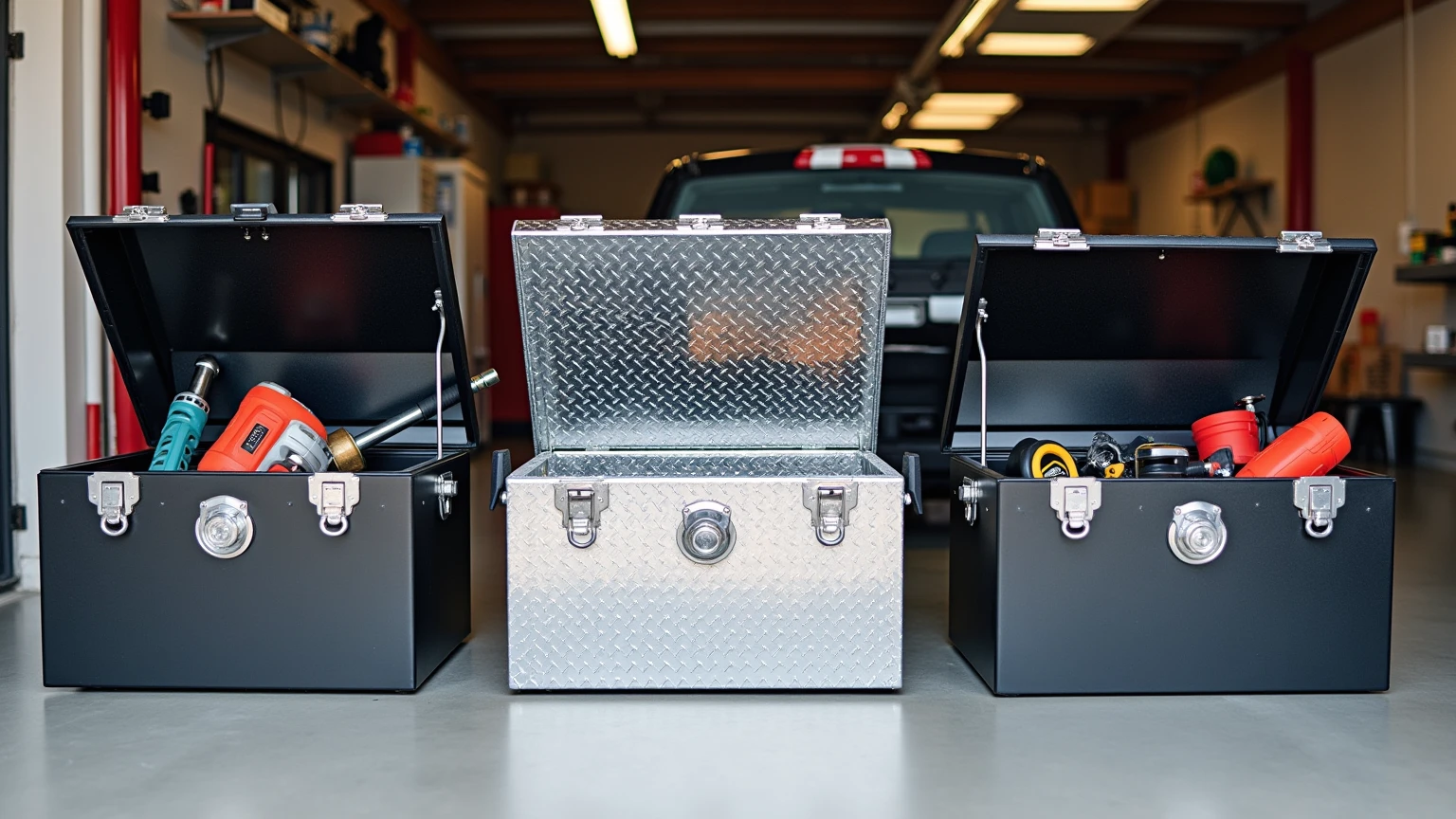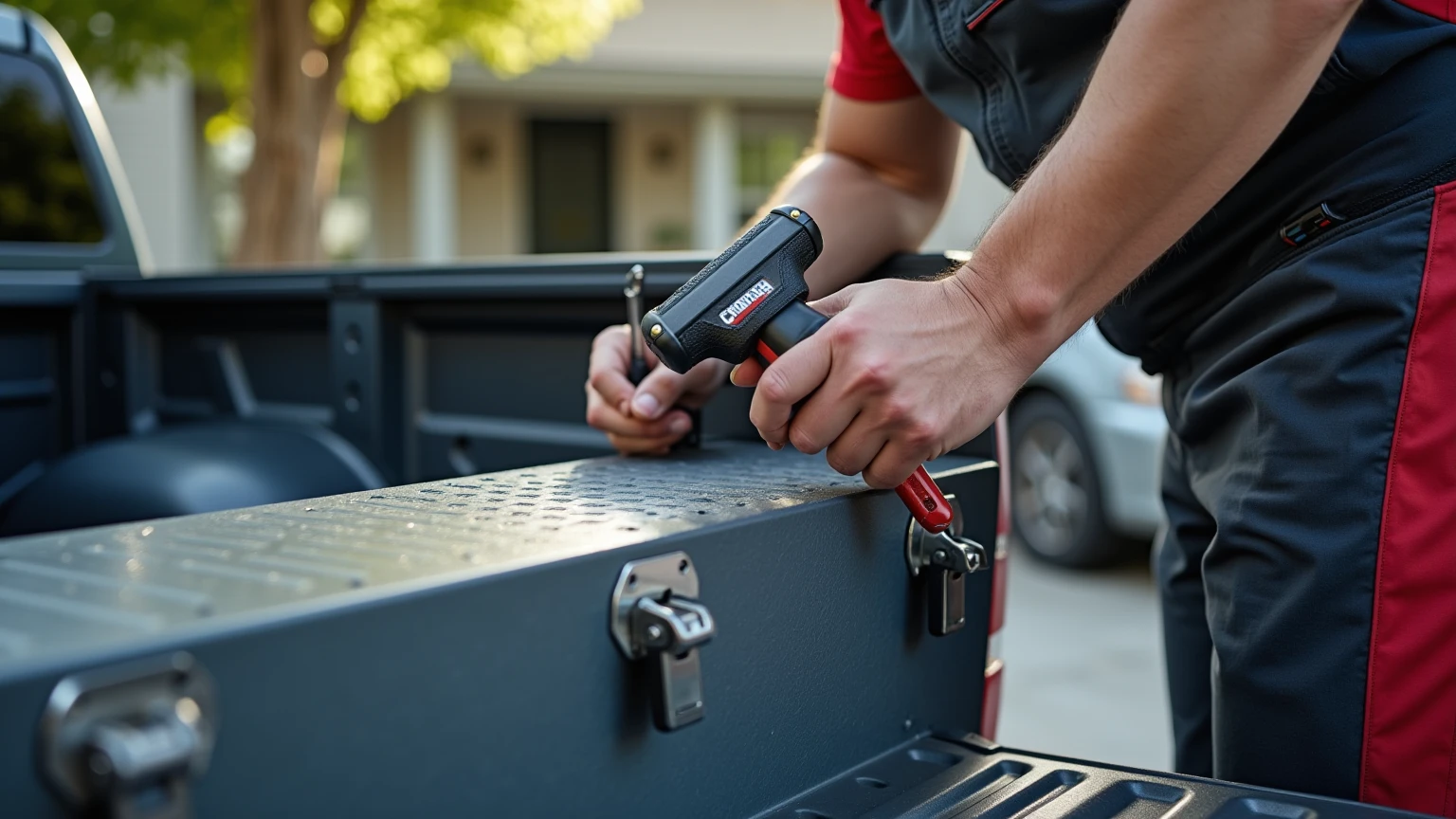When it comes to managing tools and equipment on a job site, truck tool boxes serve as an indispensable asset for contractors. Not only do they help keep valuable equipment organized and safe, but they also enhance efficiency, enabling professionals to work seamlessly without the nuisance of lost tools.
For contractors, a reliable tool box is not just a convenience; it's a necessity. The right tool box can protect your equipment from theft and damage while providing organized access when you need it most. This is critically important on busy job sites where time is money.
Various types of truck tool boxes cater to different needs. From crossover tool boxes that fit over the bed rails to chests that slide beneath truck toppers, each design has its advantages and drawbacks. This guide will explore those specifications to equip contractors with the knowledge needed for choosing the right tool box.
With vast options available, contractors can feel overwhelmed by choices. This guide addresses essential features every contractor should consider, ensuring informed purchase decisions that lead to enhanced productivity.

When selecting a truck tool box, several features are critical to consider to ensure it meets personal and professional needs.
Durability is the cornerstone of a good truck tool box. Made from materials like steel, aluminum, and polymer, each has unique properties. Steel offers strength but can rust if exposed to moisture. Aluminum is lightweight and resistant to rust but may be prone to denting. Meanwhile, polymer is emerging as a lightweight, durable option that combines the advantages of both materials without rust concerns.
Security is paramount. A sturdy lock and a design that minimizes vulnerabilities (such as weak seams) are essential features. Investing in tool boxes with reinforced locking systems can safeguard tools worth thousands of dollars.
Being exposed to various weather elements can degrade tools fast. Choose a tool box with weatherproof seals to keep dampness and moisture away. Many high-quality options do a good job of protecting contents against the rain and snow.
The right tool box should fit snugly in your truck bed without impinging on cargo space. Compatibility with your specific truck model is essential; take measurements and do your research before purchasing. Some boxes can be significantly slimmer, which is beneficial for modern trucks with shorter beds.

Understanding the strengths and weaknesses of the materials will help contractors choose wisely.
Steel boxes are robust and secure but can also rust; regular maintenance is critical. They are the optimal choice for those needing a long-lasting solution under heavy stress.
Lightweight and resistant to rust, aluminum boxes are easy to handle. However, one must be cautious about securing the contents, as they may be more susceptible to theft compared to their steel counterparts.
As the construction gear industry evolves, polymer tool boxes are gaining traction for their weatherproof characteristics and lightweight design. They often combine the best attributes, making them conducive for various jobs.
When selecting a tool box, assess your specific requirements before making a decision.
Consider both the type and quantity of tools you'll be hauling. Identify whether you’re storing hand tools, power tools, or larger items.
Setting a budget is crucial; while an expensive tool box may provide enhanced security, weigh this against your needs and the frequency of use.
Not every tool box fits every truck. Always check compatibility with your truck model and bed size before purchasing.
Proper installation and maintenance extend the lifespan of your tool box.
Most tool boxes can be installed using basic hand tools. Make sure to follow the manufacturer's instructions to ensure a secure fit.
Regular cleaning and checks will keep your tool box in optimal condition. Avoid storing wet items that can lead to rust or mold build-up inside.
One common issue includes rusting, especially with steel material. Regularly check for paint damage and treat it immediately to avoid extensive rust spread.
To recap, key features to consider when choosing a truck tool box include material durability, security measures, weather resistance, and size compatibility.
Every contractor's needs are unique, and understanding these essential features will lead you to select your ideal tool box. Investing the time in making the right choice will ultimately enhance your efficiency, streamline your workflow, and protect your valuable tools.
1. What are the best materials for a truck tool box?
Steel, aluminum, and polymer are the most common. Each has benefits involving weight, rust resistance, and durability.
2. How do I know what size tool box to buy?
Measure your truck’s bed dimensions, and consider the tools you plan to store.
3. Can I install a tool box by myself?
Yes, most installations can be done easily with basic tools. Follow the manufacturer's directions carefully.
4. Are tool boxes waterproof?
Most quality tool boxes provide weather resistance but are not entirely waterproof. It's best to avoid storing wet items.
By following this comprehensive guide, contractors will be well-equipped to choose the perfect truck tool box that enhances efficiency and meets their unique requirements.